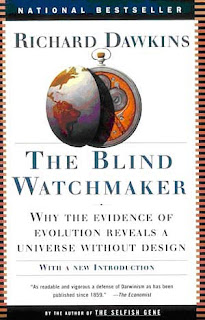Christianity (or Evangelicalism, as we have been so dubbed in the Western world in recent years) has become a powerful political force. More and more people have come to the realization that Jesus really wasn't a Republican after all. He did certain things that defy conservatism. Al Franken and Don Simpson wrote the now famous comic The Gospel of Supply Side Jesus, which has made quite a stir even in evangelical circles, garnering a mention in Donald Miller's Searching For God Knows What. So is Jesus a liberal?
Mark 5:25-34 may give us some idea of his political affiliation at least in one instance. Here we have a case of a woman who has endured a long battle with some debilitating infirmity, which one version renders "hemmorhage." It's not my intent here to delve into the specific nature of her condition, but verse 26 tells us that she "had endured much at the hands of many physicians, and had spent all that she had and was not helped at all, but rather had grown worse."
Jesus goes on to heal the woman, in spite of the fact that he is in a tremendous hurry to help someone far more wealthy and politically important. What I find interesting is Jesus' reaction to the woman. When he does decide to help her, how does he do it? Does he raise awareness of the evils of commercial healthcare, and petition Rome to institute healthcare reform? Does he find her a lawyer who can fight for her in the civil courts to at least win some money from the doctors who fleeced her?
No, he doesn't react to her in any way that can be deemed political. The Greek word from which we derive politics is polis, which means "city" or "nation." A politician is one who works as a mediator and leader in such settings. He does not act alone. All that he does must concern a large number of people.
Jesus, however, acts alone here. He doesn't ask for permission. He doesn't get a permit. He heals her on the spot. Here we have real power and real love. Here we have a man who needs no party platform, funding or election to perform his social action.
And here is the issue as I see it. Jesus is not interested in politics when it comes to establishing his kingdom. He is an advocate for the poor to be sure, but his advocacy starts and ends with him. What does Jesus say when the disciples are freaking out about the five thousand hungry people in their care? "You give them something to eat." He doesn't tell them to ask someone else (other than himself) for help.
The Gospel of Jesus Christ gives us no information on Jesus' politics, except this-that if any change is to come in this world, it's not going to be through government, but through people. Jesus has set the standard for us as Christians to attack social ills at their core, to enter into these very complex problems personally. The incarnation is the theology of personal involvement. If we want to see change and bring healing and help to those in need, we can't depend on the government to do it for us.
And I do understand that most of us, especially in the West don't quite have Jesus' magic touch, and we will need group involvement in this mission to the unfortunate. However, as a Church we need to own this vision. Instead of trying to fight against welfare and social healthcare politically, if the Church with all the people in it would do as Jesus did and personally deal with social ills face-to-face we would put the need for welfare and social healthcare on the shelf.
Now, I am not going so far to say, as some like Gregory Boyd have, that we need to leave politics alone. Some of us may feel a pull in the direction of politics, and that's fine. There's nothing wrong with government. It's a necessity, and the Bible does not disparage it. But it is not the means of salvation. It is only a retaining wall (and a flimsy one at that) to check human evil.
Now, I have a feeling all that I've written (and in the above paragraph especially) can be reduced to the tenets and talking points of one or two of the political parties out there. But I dare you to try to fit Jesus into the party platforms of the big three and see what happens. He wields power like a neocon in a crusade on terror, but the terror he fights is metaphysical; yet he demonstrates love like the democrats who fight for the rights of those who have no voice.
Is Jesus red or blue? Thankfully, it seems that he, like any good artist, doesn't restrict himself to the use of one color or the other, and if the parties involved would take a closer look, they'd probably find a myriad other colors in there that defy political duplication.
Gary Wills has written a phenomenal opinion piece in the New York Times that deals with this subject as well. Check it out: Christ Among the Partisans.
ngram Shenanigans
7 years ago



















